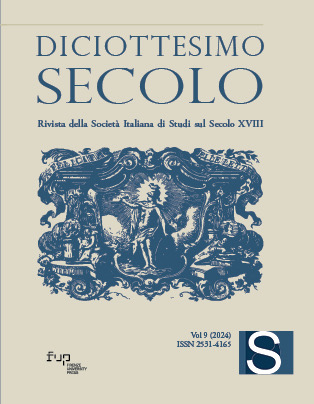Published 2024-10-07
Keywords
- Sentimental novel,
- Empathy,
- Late Enlightenment,
- Conte philosophique,
- Virtue
How to Cite
Copyright (c) 2024 David Matteini

This work is licensed under a Creative Commons Attribution 4.0 International License.
Abstract
In his conte philosophique L’Ingénu (1767), Voltaire engages in his philosophical battle through an original analysis of the love affair between the naïve protagonist Huron and Mademoiselle de Saint-Yves, a young Breton girl with a strict Catholic upbringing. The conflict between their desire to marry and the religious and political institutions is represented here by means of stylistic grafts belonging to the tradition of the genre of the sentimental novel, which in the middle of the 18th century was on the rise in France and the rest of Europe. Making the most recent discoveries in the medical-psychological field his own, Voltaire thus aims to establish the empathic bond on which the moral background of sentimental rhetoric was based through the representation of the psychological and physical suffering of the young protagonists. Distancing himself from the traditional concept of moral ‘virtue’ that was at the basis of the English sentimental novel, Voltaire thus instituted a reflection on amorous sentiment, now conceived not only as the main expression of the passion of individuals, but as a critical device to try to elaborate in an alternative way that reunion between private and public virtues that was at the basis of the Enlightenment mission.

